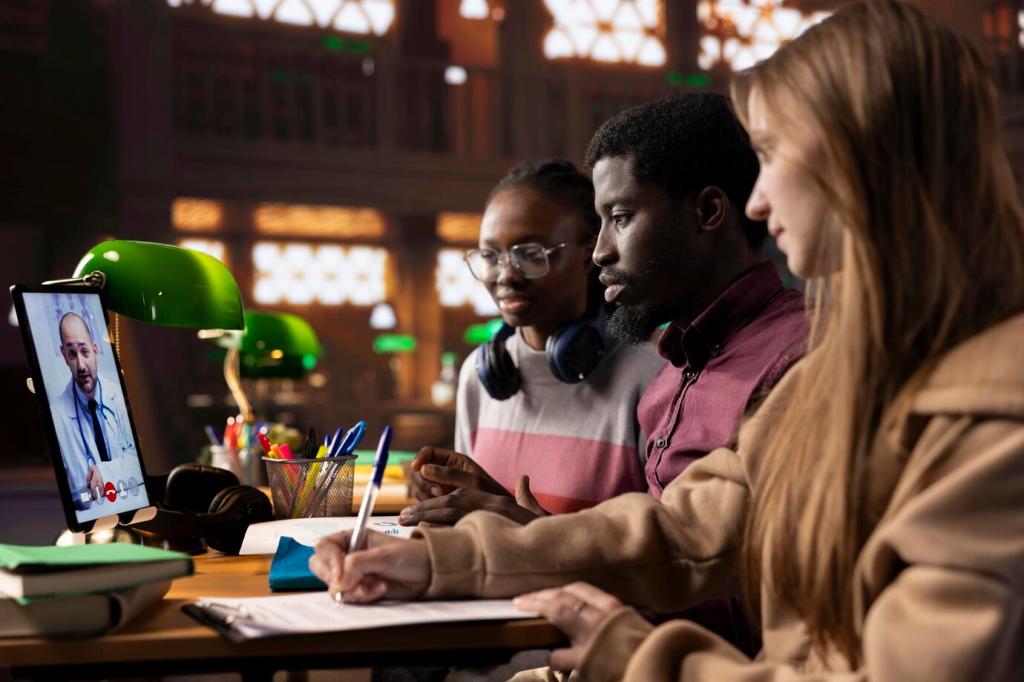Theme: Historical Context and Cultural Sensitivity in Guide Courses
Guiding is more than memorizing dates; it is the art of honoring memory, nuance, and people. This edition explores Historical Context and Cultural Sensitivity in Guide Courses, inviting you to refine your craft, ask better questions, and build empathy-rich tours that resonate. Share your experiences, subscribe for new modules, and help shape a more thoughtful guiding culture.



Cultural Sensitivity Fundamentals for Guides
Language Choices That Honor Lived Experience
Words can affirm or erase. We model people-first phrasing, avoid stereotypes, and cite community-preferred terms. When uncertain, we acknowledge limits and defer to local voices. Invite feedback on tour language, and credit contributors, building a culture of respectful learning.
Etiquette, Dress, and Body Language Across Contexts
Small gestures carry meaning. We cover respectful attire for sacred sites, posture and proximity norms, and attentive listening cues. When entering community spaces, we follow host guidance, introduce our purpose transparently, and ask permission before photographs or recordings.
Inclusive Storytelling for Diverse Groups
Guides meet guests with varied identities, needs, and prior knowledge. We practice layered storytelling, multiple access points, and clear content advisories. By offering choices and pacing options, we support empowerment, welcoming participation from quiet listeners and bold questioners alike.

Research Methods and Source Ethics
We explore diaries, city records, and academic syntheses alongside oral histories that preserve memory often missing from archives. Guides learn to contextualize each source’s bias and origin, weaving them into a balanced narrative that honors both evidence and lived experience.
Research Methods and Source Ethics
Ethical research includes asking who is affected and who should be consulted. We encourage reciprocal relationships with community elders, local historians, and cultural leaders, ensuring benefits and acknowledgments flow back. Engagement deepens accuracy, relevance, and respectful representation on every tour.
Addressing Difficult Histories with Care
Setting Expectations and Psychological Safety
Begin with clear advisories, participation options, and supportive ground rules. Acknowledge potential triggers and provide opt-out pathways without pressure. By normalizing breaks, questions, and quiet reflection, guides create conditions where difficult truths can be heard and processed responsibly.
Trauma-Informed Guiding in Practice
Trauma-informed care emphasizes choice, collaboration, and transparency. We model gentle pacing, content warnings, and non-graphic language. After intense sections, we offer grounding techniques and hopeful pathways for learning. These habits reduce harm while preserving historical integrity and human dignity.
Handling Harmful Remarks Without Shaming
When problematic comments arise, we coach responses that redirect, educate, and maintain safety. Name the impact briefly, restate guidelines, and invite curiosity over debate. Private follow-ups can deepen understanding, while the group sees respect upheld without escalating conflict or humiliation.
Field Case Studies and Anecdotes
A trainee reframed a ruined square by juxtaposing official plaques with resident testimonies. Visitors heard grief and resilience together, then paused for questions. The group left quieter, but clearer, and several subscribed for deeper modules on memory politics and reconciliation.
Field Case Studies and Anecdotes
Initially, the course proposed a one-off talk. Elders asked for co-design instead. The syllabus shifted to paid collaboration, language guidance, and shared authorship. Tours now center Indigenous voices, and guests receive reading lists approved by the community’s cultural knowledge keepers.

Role-Plays that Mirror Real Ethical Dilemmas
We stage scenarios like offensive remarks, contested memorials, or unexpected community objections. Trainees practice de-escalation, cite sources, and make transparent choices. Debriefs focus on impact and repair, not perfection, building confidence for moments that matter most on tours.
Feedback Loops with Communities and Peers
Assessment includes community input, anonymous visitor surveys, and peer observation. We prioritize actionable notes, celebrate growth, and document commitments. Regular check-ins keep sensitivity alive beyond certification, turning evaluation into a living conversation rather than a one-time hurdle.
Reflective Journals and Bias Audits
Guides track assumptions, language shifts, and resource gaps over time. Bias audits highlight patterns in who is centered or omitted. Journals capture breakthroughs, missteps, and next steps, creating a personal archive of accountability that elevates historical context and care.
